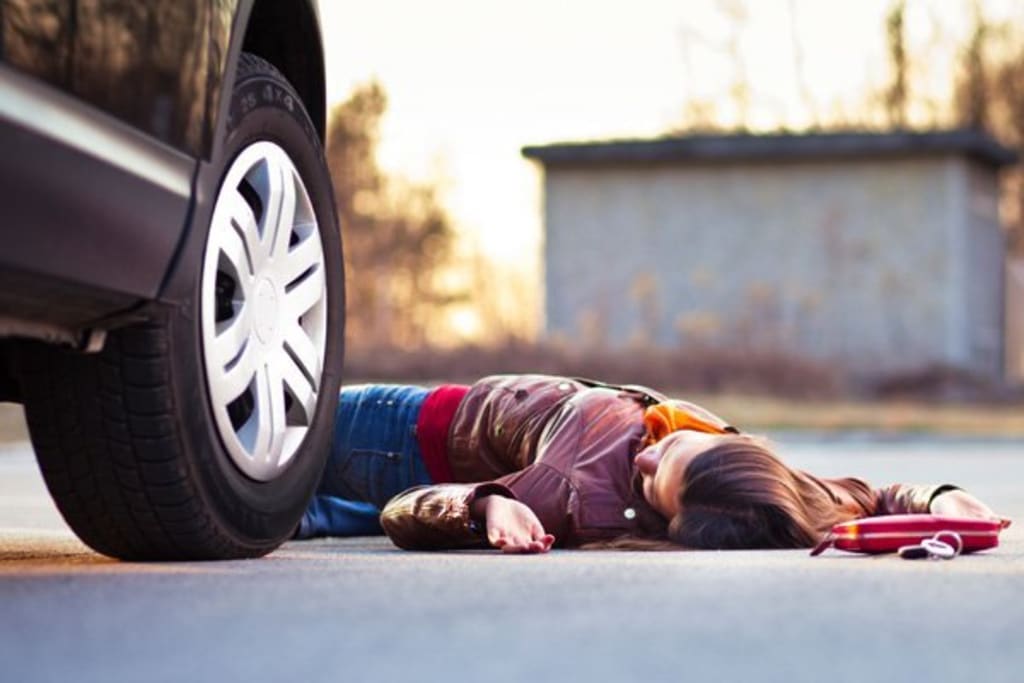What if a Rideshare Hits a Pedestrian?
The Law Offices of Samuel Fishman

Accidents caused by reckless or negligent driving happen all of the time. Often the driver is at least partially at fault, but sometimes they are not. As more types of commercial transportation systems become available, laws and regulations related to auto accidents and personal injury have also expanded.
A “rideshare” is an arrangement between a passenger and private vehicle owner in which the passenger is transported by the vehicle owner, typically for a fee, and the service is coordinated through the use of a website or app. Some popular rideshares in use today are Uber and Lyft. The rideshare business model is brilliant and travel friendly. You can schedule a ride from almost anywhere using a mobile application. Someone will come to your location and pick you up, usually hassle free.
Rideshares, however, are not always entirely hassle free. Like any other travel, rideshares can go wrong. Drivers are usually non-professionals who are not specifically trained to drive beyond their normal licensure requirements. Motorists and pedestrians who have been involved in a rideshare accident should understand the law, their rights, and the steps they can take to protect themselves.
The Rideshare Business Model
In most major U.S. cities, Uber and Lyft are now competing with taxis, bus services, and subways. Uber has already taken a giant leap ahead by expanding its services globally.
Unlike traditional taxis, who must be either called by telephone or waved down from the street and apply fixed charges, the Uber and Lyft business models utilize technology to put customers in touch with drivers. Fares are adjusted based on market conditions. During peak commuting times, drivers can charge more or vice-versa.
This business model allows drivers to maintain flexibility through choice of when and where to work. It also grants consumers transparency through the use of driver ratings and competitive pricing. Moreover, unlike the traditional taxi cab industry, rideshares are not yet burdened by extensive regulation, high fees, and special license requirements.
What to Do if You Have Been Hit by a Rideshare Vehicle
For the purpose of recovering compensation related to any damages incurred as a result of being hit by a rideshare vehicle, you must be able to demonstrate two things:
- Liability: This means the legal responsibility of the parties. It is the state of being obliged by law to do, pay, or make good on something.
- Damages: This refers to the physical and monetary harm caused to something. In motor vehicle accidents, this can refer to medical expenses, property damage, lost income, pain and emotional suffering, and more.
Proving Negligence if Hit by a Rideshare Vehicle
In many ways, legal actions against a rideshare driver will proceed the same as with any other motor vehicle accident. You begin by assessing whether you can establish that the driver was at fault by operating the vehicle negligently. Your claim will likely begin with an insurance company, but insurance is where you may discover differences in how to handle rideshare accidents.
If the driver had a commercial insurance policy or a ridesharing "endorsement," your claim may be covered but you may not be under their personal insurance policy. A typical automobile insurance policy covers accident claims for personal use, but in this case the driver has caused an accident while engaged in commercial use. Because this is not personal use under the terms of most insurance policies, the driver's insurance carrier will most likely deny the claim.
In this situation, your initial concern will be whether your medical expenses and property damage will be covered absent the driver having a commercial policy. Many rideshare companies like Uber and Lyft offer liability insurance to drivers working under their rideshare services. When a driver covered by one of these policies causes an accident that injures you, the driver's liability insurance will provide at least some monetary coverage.
Rideshare Drivers and Car Insurance
Uber and Lyft have liability coverage policies for drivers working with them. The company knows when its application is being used and will only provide coverage while it is in use. Otherwise, anything that happens while not in use should be covered by the driver’s personal, non-commercial insurance. Many rideshare policies provide varying levels of coverage depending upon what period of a “trip” the driver is in.
For example:
- Period 0: When a driver has not logged into the rideshare application, and there is an accident, the driver will not be covered under the rideshare insurance.
- Period 1: The rideshare driver is not carrying passengers or en route to pick up a passenger but is logged into the application. If an accident occurs at this time, the victim may be covered by rideshare policy. Coverage amounts will vary by company and policy contract.
- Period 2: When a rideshare driver has logged in and accepted a ride, but the accident occurs on the way to pick up the customer, the rideshare policy will often provide coverage.
- Period 3: When the driver causes an accident with the passenger inside the vehicle, there will be additional insurance policy coverage.
What to Do After a Rideshare Accident
You must take careful note of the scene of the accident, speak to witnesses, and get the other driver’s information. Try to take pictures. If you require medical assistance, call for emergency assistance. If police arrive at the scene, remain calm and cooperative but do not volunteer more information than what they ask for. Most importantly contact a Rideshare accident lawyer to preserve your claim. A qualified attorney with experience in rideshare accidents will be able to help get you the money you are owed for your injuries.
About the Creator
Samuel Fishman
Samuel Fishman is the Founding and Lead Partner at the Law offices of Samuel Fishman, PC. At the Law Offices of Samuel Fishman, Mr. Samuel Fishman represents seriously injured people in both state and federal court. Specification.
Enjoyed the story? Support the Creator.
Subscribe for free to receive all their stories in your feed. You could also pledge your support or give them a one-off tip, letting them know you appreciate their work.






Comments
There are no comments for this story
Be the first to respond and start the conversation.